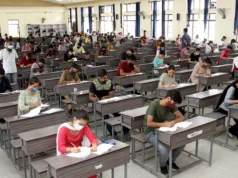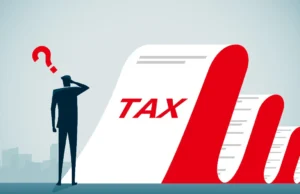As the Union Budget 2025-26 approaches, taxpayers are eager to learn about potential income tax reforms that could significantly reduce their financial burden. Finance Minister Nirmala Sitharaman is set to present the budget on February 1, 2025, and reports suggest that substantial changes in the tax structure may be on the horizon.
Proposed Changes: ₹10 Lakh Tax-Free Income and New 25% Slab
According to a Business Today report, government sources indicate two significant possibilities: annual income up to ₹10 lakh could be made tax-free, and a new 25% tax slab might be introduced for individuals earning between ₹15 lakh and ₹20 lakh annually. These measures aim to increase disposable income and boost consumer spending. Currently, income exceeding ₹15 lakh is taxed at 30% under the new tax regime.
Two Relief Options Under Consideration
The government is reportedly evaluating two primary options:
- Complete tax exemption for income up to ₹10 lakh.
- Creation of a 25% tax slab for incomes between ₹15 lakh and ₹20 lakh.
A government source stated, “We are reviewing both options. If the fiscal space allows, we might implement both measures simultaneously to provide maximum relief to taxpayers.”
The administration is prepared to absorb a revenue loss of ₹50,000 crore to ₹1 lakh crore to facilitate these changes. This move is expected to stimulate demand across sectors by enhancing purchasing power.
Standard Deduction Benefits and Past Reforms
In the previous Budget 2024-25, the standard deduction under the new tax regime was raised to ₹75,000. As a result, individuals earning up to ₹7.75 lakh annually effectively paid no income tax.
Experts Weigh In: The 25% Tax Slab Could Be Game-Changing
Tax expert Akhilesh Ranjan, PwC advisor and former CBDT member, supports introducing a 25% tax slab for those earning between ₹15 lakh and ₹20 lakh. He believes this would encourage higher consumption, particularly for goods like appliances and electronics, thereby aiding economic growth.
Debate Between New and Old Tax Regimes
While significant changes are expected in the new tax regime, experts like Ankit Jain of Ved Jain & Associates argue that the old tax regime should remain an option. He highlights that the old regime allows deductions for expenses such as rent, home loans, and tuition fees—benefits not available in the new system.
However, the government appears to favor the new tax regime due to its simplified structure, even though many taxpayers still prefer the old system for its deduction benefits.










